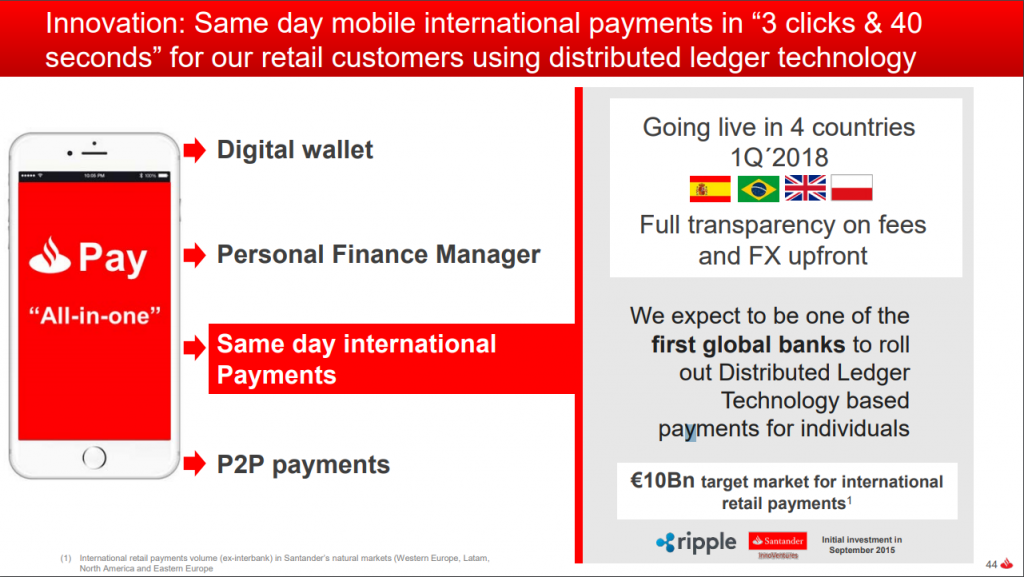Santander Chooses Ripple for International Payments

The Spanish bank introduces a new Blockchain-based cross-border mobile payment solution. They rely on Ripple’s network to let individual customers make same-day international payments. Santander stands out as their solution is live in four countries at once.
Banco Santander uses Ripple's xCurrent technology to cut down international payment delays, which typically can take up to several days to process. The Spanish bank claims their app will make it possible for its users to send payments in “3 clicks & 40 seconds”.
Banco Santander’s UK subsidiary has been running tests in May 2016. The point was to enable next-day payments for amounts ranging from 10 to 10,000 pounds. This solution relies on Apple Pay as an interface for confirmation through TouchID.
The app will be rolled out during Q1 2018 in Spain, in the UK, in Brazil and in Poland.
Comments – Ripple keeps attracting banks
XRP prices have dropped by 14% last Friday (February 2nd), but Ripple’s centralised virtual currency hasn’t stopped attracting financial institutions. A partnership with the international money transfer specialist Moneygram has also been announced very recently. Ripple keeps strengthening their commercial position as they now convinced one of their largest banking customers.
In fact, Ripple stood out as did gain support from banks, including UBS or UniCredit. Santander now claims they are the first institution to propose payments through a mobile app which relies on this start-up’s DLT. They already stressed their interest in this company when they took part in a round table conducted in September 2016.
Ripple seems to be aiming for a bright future considering this banking support. Their instant cross-border transactions and attractive prices have been very convincing so far. In fact, banks are seeking to make their international transfer services more competitive. Especially now that pressure also increasingly comes from neo-banks and start-ups on this specific market (Transferwise or Revolut are outstanding examples to this respect). The Californian start-up also plans to design a global payment system for banks.
